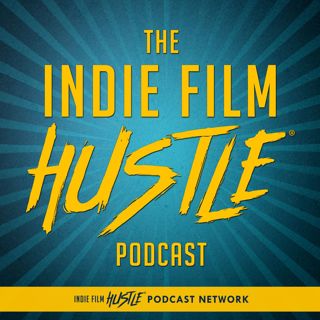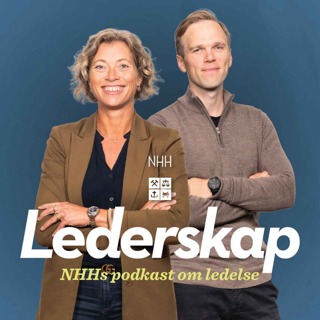
IFH 823: The Secret to Getting Noticed as a Screenwriter with James Moorer
James Moorer is a screenwriter whose path into Hollywood began with early experiments in short films and years of disciplined study. Starting out as a PA, he worked his way up while sharpening his craft through seminars, classes, and relentless writing. He quickly learned that screenwriting is more than just putting words on the page — it’s also about understanding the business side of the industry and building credibility step by step. His philosophy is simple: every script, meeting, or assignment should “move the needle” toward progress, even if the rewards aren’t immediate.What sets James apart is his focus on relationships and professionalism. He believes that a writer’s reputation is as important as their work, and that openness to feedback separates amateurs from professionals. This approach helped him secure management with Purple Skull, not through cold queries, but through trust and collaboration. By embracing notes and staying consistent in both writing and networking, James shows that screenwriting success isn’t about one big break, but about persistence, adaptability, and steady growth in the craft and the business.Become a supporter of this podcast: https://www.spreaker.com/podcast/indie-film-hustle-a-filmmaking-podcast--2664729/support.
7 Okt 1h 10min

IFH 822: From Video Games to the Big Screen: The Filmmaking Journey of Nicole Jones-Dion
Nicole Jones-Dion, a screenwriter, director, and producer, shared her unconventional path into filmmaking, beginning in the world of video games and comics before moving into film. Known for her work on projects like Tekken 2, Dracula: The Dark Prince, and the SyFy thriller They Found Hell, she has built a career in genre storytelling that blends sci-fi, horror, and action. Her persistence paid off after writing more than fifteen spec scripts and seizing opportunities to rewrite and adapt existing material, which she says makes up most of Hollywood screenwriting.Nicole’s approach emphasizes discipline, structure, and character-driven storytelling, ensuring her projects are both creative and marketable. She also found success with crowdfunding, raising nearly $20,000 for her short horror film Debris, which explored the legend of a cursed samurai sword. The campaign’s popularity proved the power of a strong concept and led to festival recognition. With her directorial debut Stasis and other projects in development, Nicole continues to explore stories that challenge audiences while entertaining them. Her journey demonstrates the importance of adaptability, hard work, and never stopping the pursuit of growth as a filmmaker.Become a supporter of this podcast: https://www.spreaker.com/podcast/indie-film-hustle-a-filmmaking-podcast--2664729/support.
30 Sep 37min

IFH 821: Filmmaking Without Permission: The Independent Journey of Clarke Scott
Clarke Scott, an Australian writer, director, and commercial photographer, shared his unconventional path into filmmaking after leaving behind academia and corporate work. A chance encounter in the Himalayas reignited his creative spark, leading him to dive into the DSLR revolution and embrace filmmaking as both an artistic outlet and a practical career. His debut feature, 1000 Moments Later, was a fully independent production he wrote, directed, shot, and edited himself — a bold decision driven by his refusal to wait for permission or compromise his creative voice.Clarke opened up about the challenges of independent filmmaking, from battling weather and limited budgets to convincing actors to join his project on back-end deals. He stressed the importance of patience, resourcefulness, and building a body of work rather than chasing quick wins like Sundance. For Clarke, the future of filmmaking lies in using available tools, leveraging local resources, and proving one’s ability to finish projects with vision and determination. His story is a testament to the power of grit and creativity in bringing films to life outside the traditional studio system.Become a supporter of this podcast: https://www.spreaker.com/podcast/indie-film-hustle-a-filmmaking-podcast--2664729/support.
23 Sep 1h 1min

IFH 820: Screenwriting, The BAM Method, And How To Write A Screenplay That Stands Out with Mike Bierman
Award-winning screenwriter Mike Bierman has carved an unconventional path into the world of storytelling, moving from reading his daughter’s audition scripts to building a reputation as both a prolific writer and founder of the Facebook group Screenwriters Who Can Actually Write. In this conversation, he shares his journey into screenwriting, his tough-love philosophy for aspiring writers, and the methods he uses to keep scripts sharp, lean, and engaging. Bierman’s unique approach, known as the BAM method (Bierman Asynchronous Method), flips traditional writing on its head by starting with the ending and working backward, ensuring that every scene pushes the story forward.Alongside his process, Mike offers candid insights into the common pitfalls of beginners, from formatting missteps to the trap of relying too heavily on software. He emphasizes that writing is not about perfection on the first draft but about committing words to the page and refining them. His upcoming book, Secrets of Screenwriting: Collected Essays, distills his no-nonsense advice into practical lessons for writers who want to treat screenwriting as a serious craft. Whether through his group, his book, or his methods, Mike challenges writers to move beyond excuses, face the blank page, and create stories that truly stand out.Become a supporter of this podcast: https://www.spreaker.com/podcast/indie-film-hustle-a-filmmaking-podcast--2664729/support.
16 Sep 1h 59min

IFH 819: How Quentin Tarantino Changed Independent Film: A Conversation with Dale Sherman
In this episode, we welcome Dale Sherman, author of The Quentin Tarantino FAQ, who takes us deep into the life and career of one of cinema’s most unconventional directors. Known first for his books on rock legends like Kiss and Alice Cooper, Dale turned his focus to Tarantino, exploring how a high school dropout and video store clerk rose to redefine independent film. From Tarantino’s abandoned first attempt at filmmaking, My Best Friend’s Birthday, to the unexpected breakthrough of Reservoir Dogs, Dale reveals how persistence, vision, and timing shaped the director’s path and changed Hollywood forever. Dale also dives into the evolution of Tarantino’s storytelling—his nonlinear structures, pop culture-laced dialogue, and signature use of music—while addressing the controversies surrounding violence and language in his films. Drawing on extensive research, Dale offers filmmakers and film lovers alike a rare, behind-the-scenes look at how Tarantino developed his craft and navigated criticism without losing his voice. This conversation is not just a biography but a blueprint for understanding how passion and originality can transform the art of filmmaking.Become a supporter of this podcast: https://www.spreaker.com/podcast/indie-film-hustle-a-filmmaking-podcast--2664729/support.
9 Sep 30min

IFH 818: From Setbacks to Festival Wins: The Filmmaking Path of Dawn Fields
Dawn Fields is a Los Angeles-based producer, writer, and director whose journey through the film industry is marked by both struggle and triumph. Beginning her career as a production assistant in Atlanta, she quickly discovered her true passion was behind the camera. After relocating to Los Angeles with nothing but determination, she worked in distribution and acquisitions before founding Palm Street Films. From early crowdfunding attempts like Zombie Elves to the painful shutdown of Shattered Love, Dawn’s career has been shaped by hard-earned lessons in persistence, preparation, and the realities of independent filmmaking. Her breakthrough came when she stepped into the director’s chair, turning setbacks into opportunities with projects like 209, Found, and Fragile Storm starring Lance Henriksen. Along the way, she learned to navigate the challenges of crowdfunding, casting, and maintaining creative control while still building credibility and an audience. Today, she not only develops new projects but also shares her knowledge through seminars and script contests, guiding emerging filmmakers. Her story stands as a powerful example of resilience in filmmaking—showing that while the path may be filled with setbacks, passion and persistence can transform failures into lasting successes.Become a supporter of this podcast: https://www.spreaker.com/podcast/indie-film-hustle-a-filmmaking-podcast--2664729/support.
2 Sep 1h 30min

IFH 817: Crafting Stories Frame by Frame with Jason Love
In this episode, we welcome Jason Love, a multi-talented creator whose filmmaking journey began with nothing more than flip books and a VHS camcorder. What started as playful experiments soon grew into a lifelong passion for animation, short films, and motion comics. Jason’s path is far from traditional—after leaving film school frustrated by outdated equipment, he turned instead to digital tools, teaching himself and later teaching others how to create stories with whatever resources they had. From library workshops to YouTube uploads, his philosophy has always been rooted in accessibility, showing that filmmaking is not about expensive cameras but about imagination and persistence. Beyond his teaching and experiments, Jason’s filmmaking ventures have stretched into comics, hybrid projects, and even television appearances. His Kickstarter campaign for an online animation course revealed his belief in breaking down barriers for aspiring creators, offering entry points as low as one dollar to make animation available to everyone. Jason’s story is a reminder that filmmaking thrives on curiosity, courage, and the willingness to start small, whether through a three-second animation, a motion comic, or a daring performance on national TV.Become a supporter of this podcast: https://www.spreaker.com/podcast/indie-film-hustle-a-filmmaking-podcast--2664729/support.
26 Aug 57min

IFH 816: From Extras to Director’s Chair: The Filmmaking Journey of Rocky Costanzo
The journey of Rocky Costanzo is a testament to the raw, unpolished path of independent filmmaking. Beginning as an actor and extra on shows like The Wonder Years, he quickly discovered his true passion behind the camera. Without formal film school, Rocky turned to public access television as his training ground, learning through experimentation, trial, and error. From lighting with hardware store lamps to filming with rollerblades for dolly shots, his early projects embodied the scrappy resilience of indie cinema. Each film became a classroom, teaching him the essentials of lighting, sound, storytelling, and directing actors with trust rather than control.As Rocky’s career evolved, so did his perspective on the changing landscape of filmmaking. He acknowledged how technology has lowered production barriers while making distribution more challenging, emphasizing that “story, story, story—that’s what lasts.” His recent project, Ditch Party, highlights this philosophy by focusing less on spectacle and more on the intimate, human drama of students trapped during a tragedy. For Rocky, filmmaking is not just about mastering craft—it is about persistence, passion, and the willingness to embrace limitations as opportunities for creativity.Become a supporter of this podcast: https://www.spreaker.com/podcast/indie-film-hustle-a-filmmaking-podcast--2664729/support.
19 Aug 52min





















